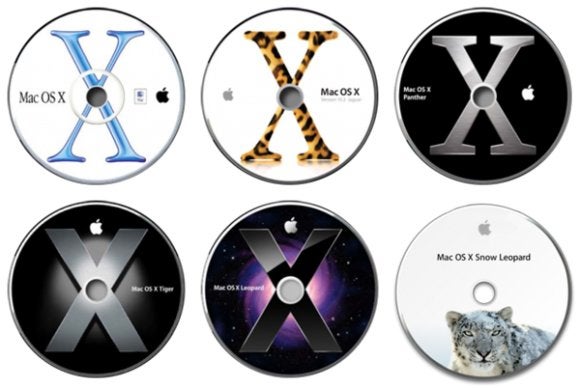NetWare is a discontinued computer network operating system developed by Novell, Inc. It initially used cooperative multitasking to run various services on a personal computer, using the IPX network protocol. The original NetWare product in 1983 supported clients running both CP/M and MS-DOS, ran over a proprietary star network topology and was based on a Novell-built file server using the. A problem where Mac OS 10.4X workstations accessing a NetWare 6.5 SP5 server get a hung finder process (finder sits at 30% + CPU in Activity Monitor). Once the finder is hung, it doesn't refresh any folders when files are changed on the network volume. Testing with 10.4.5 & 10.4.6 of Mac OS have same problem. Exists with NW65 SP3, 4 and 5. Prosoft Engineering has released NetWare Client for Mac OS X - IP Edition 1.1, the latest version of their software to enable Mac OS X-equipped systems to connect to a Novell IP-based network. NetWare Client 5.12 for Mac OS is easier to use than previous versions of the client software and enables users to access all of your company's network resources to which they have rights. In addition, users can easily install NetWare Client 5.12 for Mac OS on their workstation without you (the network administrator) needing to visit each. JSherman writes 'Prosoft Engineering has released a client that enables Mac OS X to connect to a Novell network. The client is pure TCP/IP, and is not tied with AppleTalk. Its been possible for Macs to connect to Netware Servers for a long time by using Novell's Native File Access, but this is a much better method since it's an actual client that will remember your user ID and password when.

As long as the backend NetWare or OES servers support either CIFS or AFP, you should be able to browse to them in Finder and access the content without installing any sort of client at all on the Mac. You would then use your eDirectory credentials (the same credentials you use in the Novell Client for Windows) to authenticate and mount the volumes.
Another thing to look into is to ask the folks administering your Novell environment if they've installed Kanaka. Kanaka is a free entitlement to OES customers current on maintenance that eases the access to resources from OS X. You would install the Kanaka Client in OS X and when you logged in to your Mac it would automount all of the same NetWare/OES resources as the Windows PCs do based on the login script mappings. It's a great solution for Mac.
Joe
Jul 5, 2013 8:25 AM
Is your Mac up to date with the latest version of the Mac operating system (macOS or OS X)? Is it using the version required by some other product that you want to use with your Mac? Which versions are earlier (older) or later (newer, more recent)? To find out, learn which version is installed now.
If your macOS isn't up to date, you may be able to update to a later version.
Which macOS version is installed?
From the Apple menu in the corner of your screen, choose About This Mac. You should see the macOS name, such as macOS Mojave, followed by its version number. If you need to know the build number as well, click the version number to see it.
This example shows macOS Catalina version 10.15 build 19A583.
Netware For Mac Os X64
Which macOS version is the latest?
These are all Mac operating systems, starting with the most recent. When a major new macOS is released, it gets a new name, such as macOS Catalina. As updates that change the macOS version number become available, this article is updated to show the latest version of that macOS.

Netware For Mac Os X 10.10
If your Mac is using an earlier version of any Mac operating system, you should install the latest Apple software updates, which can include important security updates and updates for the apps that are installed by macOS, such as Safari, Books, Messages, Mail, Music, Calendar, and Photos.
Netware For Mac Os X 10.13
| macOS | Latest version |
|---|---|
| macOS Catalina | 10.15.7 |
| macOS Mojave | 10.14.6 |
| macOS High Sierra | 10.13.6 |
| macOS Sierra | 10.12.6 |
| OS X El Capitan | 10.11.6 |
| OS X Yosemite | 10.10.5 |
| OS X Mavericks | 10.9.5 |
| OS X Mountain Lion | 10.8.5 |
| OS X Lion | 10.7.5 |
| Mac OS X Snow Leopard | 10.6.8 |
| Mac OS X Leopard | 10.5.8 |
| Mac OS X Tiger | 10.4.11 |
| Mac OS X Panther | 10.3.9 |
| Mac OS X Jaguar | 10.2.8 |
| Mac OS X Puma | 10.1.5 |
| Mac OS X Cheetah | 10.0.4 |
